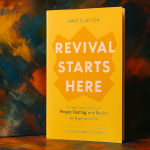Listen to these words by St. Augustine, which have the contemporary ring of today’s science vs. faith debate to them:
Usually, even a non-Christian knows something about the earth, the heavens, and …this knowledge he holds to as being certain from reason and experience. Now, it is a disgraceful and dangerous thing for an infidel to hear a Christian, presumably giving the meaning of Holy Scripture, talking nonsense on these topics; and we should take all means to prevent such an embarrassing situation, in which people show up vast ignorance in a Christian and laugh it to scorn. …If they find a Christian mistaken in a field which the themselves know well and hear him maintaining his foolish opinions about our books, how are they going to believe those books in matters concerning the resurrection of the dead, the hope of eternal life, and the kingdom of heaven, when they think their pages are full of falsehoods on facts which they themselves have learnt from experience and the light of reason?
I know exactly what he’s talking about. Years ago when I lived on a small island, I’d become friends with a biologist. He was smart, funny, cared deeply for the well being of planet, and had all the marks of what we’d call a genuine spiritual “seeker”. I enjoyed spending time with him and as our relationship grew, he became interested in faith. Because he was a thinker and a biologist, I gave him a book which I thought would help him understand our glorious calling to steward the earth. I’d read the book and loved it. But then, I’m not a biologist. He read the book and we got together for some conversation and he said, “Is it really true that the Bible says Lions and Lambs will lie down together?” I responded with an unequivocal “Yes”, because the Bible says that explicitly, and because I’d seen paintings of the two creatures chilling together in God’s perfect future.
“That’s not possible” he said, and then he went on to describe how lions are made to eat meat, how they’ll die of they’re denied their carnivorous role. I said no, said that God could change it all, said that it was, most assuredly a literal prophecy. He told me it was outlandish to believe such a thing. I told him that the virgin birth was also outlandish. But he said, “no – that’s a miracle – that’s a single intervention. But if I need to believe that a lion will no longer eat meat – I couldn’t be a biologist, couldn’t be a scientist.”
Done. He walked away from considering the faith because I told him that he needed to believe that the Isaiah reading had to be literal. He’d bought in to the whole “the world is broken” piece of our belief system, even bought into his own sinfulness and his need to be reconciled with God. But the sticking point was that he believed the world had an order to it that made sense, a beautiful ecological interconnectedness that, in fact, invited worship and pointed to a creator. His stumbling block was that he pondered if perhaps Isaiah was speaking poetically about a time of great peace, and I said that no, he wasn’t. I said that the lion will literally lie down with the lamb – that if you can’t believe that, in spite of the fact that it deconstructs all your science, then you can’t know God and be reconciled to Christ.
We still saw each other after that conversation, but not in church. He stopped going. Our conversations faded. Only later did it begin to dawn on me that I’d forced him to make a choice that he didn’t need to make. I’d forced him to choose between science and faith. Though I didn’t realize it at the time, I can see now that I belonged to a tribe of preachers who viewed science and faith as opponents in a wrestling match, living in separate corners, drawing on different “gods” and revelations, and always coming to different conclusions. I gave lip service to the bit about how early scientific endeavor was populated by Christians but always went on to add that “all that changed when Darwin came on the scene.” Never mind that I’d never read the man, I’d been told by those who’d been told by others who read the man, that only people like Marx, Lenin, and Hitler, enjoyed Darwin, and that nothing good could come of his observations made on Easter Island.
It was the evangelical party line, and it forced a generation of young people to choose between science and faith, and it was wrong. I’m not here to defend Darwin. Frankly, the subjects of DNA, mutations, and the science behind cosmology, taxes the limits of my small mind, even at the basic level. I am here, though, to say “shame on us”.
Over and over again throughout history, we’ve pontificated with certainty about what’s literal and what’s metaphor in the Bible. Then science comes along and says, “maybe the earth isn’t flat, with four corners” like many thought, for centuries, because of Isaiah 11:12. And if that “four corners” bit is actually metaphor, maybe it’s metaphor five verses earlier when the lion is lying down with the lamb. And if that’s metaphor, maybe my biologist friend is right. If he’s right, then there’s no barrier to him stepping into God’s story and believing. No barrier, that is, other than the false one I erected for him 28 years ago. I don’t know what became of him, but I know what became of me.
I’ve become a Christian who is more terrified of being like the Pharisees who covered their ears when truth was being told, than I am of being open to new views, informed by what science discovers. You see, if I cover my ears and shout slogans I’ve heard from people who’ve only read secondary sources, I’ll not only be the village idiot, I’ll be something much worse; I’ll be someone who gives people a reason to NOT believe in Jesus. That’s why I’m jumping in the deep end, and teaching my series on Genesis One this week, considering how science and faith can become allies instead of adversaries. Join us… or listen online the Monday after here.
I welcome your thoughts, and questions.















